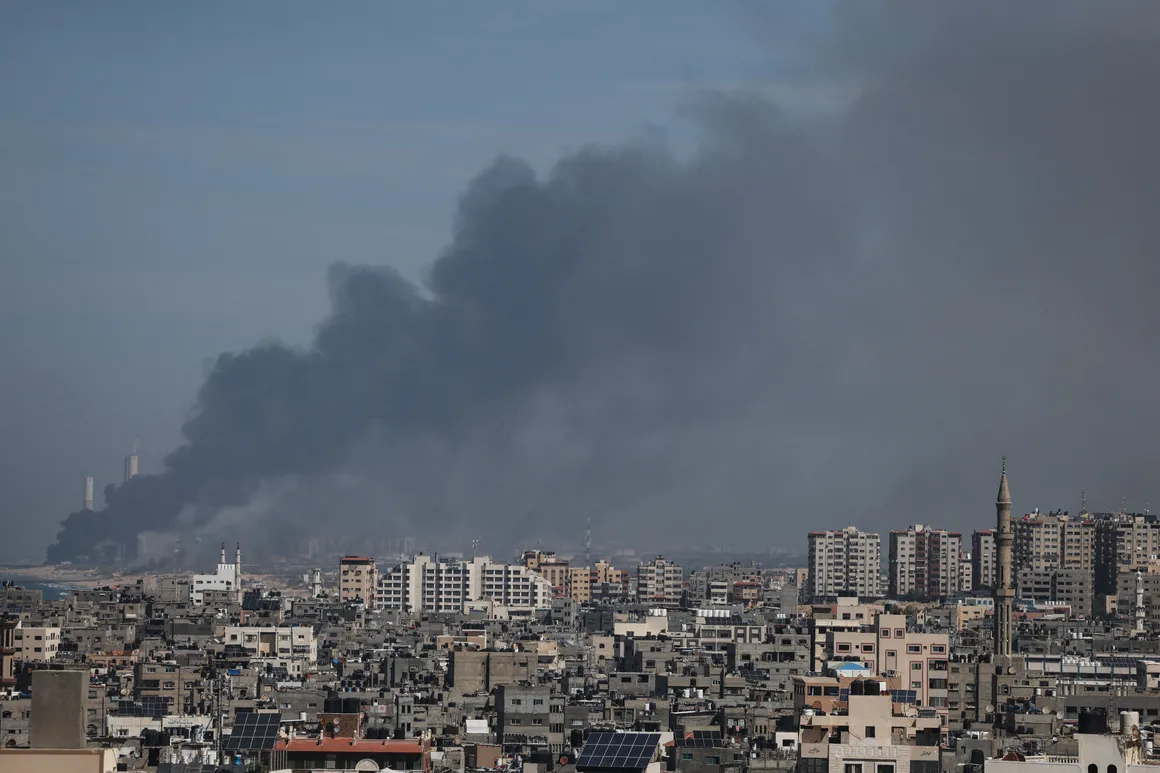Shaul Magid has
a very interesting, provocative, and thoughtful essay in Religion Dispatches about the current state of affairs in Israel and Palestine -- where it came from, and where it is going. Magid is an author for whom my general orientation is that I rarely agree with everything he says, but always find him worth reading, and so it is here. But one point in particular that he makes that very much resonates is that Hamas' attack on Israel "is not the beginning, nor the end, but as with most things, somewhere in the horrifying middle."
Nothing in geopolitics comes on a fresh slate, and there will always be history trailing behind us (and laid out in front of us). It is not justification or excuse to observe the obvious truth that Hamas' attack did not emerge ex nihilo. The same, of course, goes for the responses to that attack, which also cannot be viewed as wholly discrete, isolated events that can be analyzed and approved of/condemned atomistically. But one thought I keep returning to, as I read both justifications for Israel's campaign against Hamas and calls for that campaign to end in a ceasefire, is that a lot of people seem to think that we're not in the middle, that we could be on the verge of (if we make the right moves, anyway) the end. And in doing so, I think they're skipping past some essential but difficult question about what comes after whatever comes next.
For most of the time following Israel's disengagement from Gaza and Hamas' ensuing takeover of the territory, Israel's policy has been one colloquially dubbed "mowing the lawn." In this metaphor, "the lawn" is Hamas' military capacity and willingness to inflict violence against Israelis across the border. When that capacity/willingness gets too dangerous (the grass grows too high), Israel launches an attack that depletes Hamas' stockpiles of men and munitions (the grass is cut), forcing Hamas to recuperate and recover. As time passes, Hamas inevitably replenishes its stockpiles of weaponry and its willingness to use them (the grass starts growing again), and the cycle repeats itself.
Notice that this policy is not one even aimed at securing a durable peace. It presupposes an ongoing and essentially endless cycle of violence; albeit one controlled at levels that are presumptively tolerable (for Israelis, anyway). That each Israeli attack inevitably will be followed by another one however many months or years later is not a failing of the strategy, it is the point of the strategy (just as it is not a "failure" when mowing the lawn that you'll have to do it again in a few months).
This was the strategy that failed and was decisively discredited on October 7. It is a failure both in its view that an endless cycle of low-grade violence could be kept at "tolerable" levels indefinitely, and in its broader apathy towards actually pursuing something that looks like a just and durable peace.
So now we move to today. The call to "destroy Hamas" is presented as a change from the prior policy of mowing the lawn; it's no longer about temporarily depleting Hamas' capacity to inflict violence, it is a decisive resolution -- the end of the story.
But how is it different, really, from "mowing the lawn"? To be clear, I shed no tears for Hamas' destruction; they're an evil terrorist organization who've inflicted untold misery on Israelis and Palestinians alike. But it's hard to imagine what "destroying Hamas" means in practice. If we're just talking about degrading the actual, social-political-military organization's specific ability to conduct operations, then maybe it's feasible -- but only because another organization will rise to take its place (and if "Hamas" is in 2024 replaced by "Babas" which does all of the same things, what has actually been accomplished?). If the goal is to permanently obliterate the ability of any actor, under any name, in the Gaza Strip to engage in insurgent violence against Israel, then it's not feasible at all -- surely, at this point, we've discredited the notion that Gaza can be bombed into permanent acquiescent quietude vis-a-vis Israel.
Put differently, a call to "destroy Hamas", without more, is just another iteration of mowing the lawn -- cutting the grass shorter, perhaps, but otherwise a repetition of the same failed strategy. It is not an end, it is a middle, and if left to its own devices it will continue the endless immiseration of the Palestinian people in service of eventually leading to another repetition of the terror we saw on October 7. So anyone calling to "destroy Hamas" has to have some plan for what to do afterwards. Those who say "destroy Hamas" and then stop there are committing the fallacy of assuming that "destroying Hamas" is the end of the problem in Israel and Gaza, and that's just obviously untrue.
So what is the "more" I propose? Simple: massive aid and reconstruction for Gaza. I spoke a few days ago of the
grimmest silver lining of terrible war sometimes finally yielding a comprehensive peace, and if the terrible war is already upon us, we might as well try to leverage it to get the lasting peace. Call it realistic, call it an ego-salve, but exploit the opportunity to say "now that Hamas has been destroyed, we can do ...." X, where X is good, humanitarian, reconstructive policies that break the pattern of entrapment and immiseration that has characterized the Gaza Strip for decades.
There will be plenty of people who resist this; who say "how can you propose giving billions to Gaza after what happened on October 7?" Worse, Hamas -- being a terrorist organization -- isn't as prone to being "destroyed" in the way that, say, a corporation or even a state government could be. It'd likely be impossible to fully obliterate them; there will always be someone with a gun and a commitment to Hamas' ideology running around somewhere.
But my mind returns to the Marshall Plan after World War II, which surely was one of the greatest foreign policy decisions in modern history. No doubt, one could say, no country deserved less in the way of repair and support than Germany after World War II. Yet there's little doubt, comparing the outcome of post WWII to post WWI, that the choice to invest in reconstruction and repair paid off in incalculable dividends. The decision to focus less on retribution ala the Treaty of Versailles -- or, perhaps more accurately, to let "retribution" be in the military defeat and in the Nuremburg Tribunals, not in the post-war occupation of Germany (on the western side, at least) -- and more on creating future conditions of prosperity and fraternity seems, in context, almost impossibly humanistic, and yet it paid off beyond I imagine even the wildest hopes of its architects. If we can do it for Germany in 1946, we can do it for Gaza in 2023. Otherwise, we're just going to relive the same cycle again and again.
So that has to be the deal: if you're going to destroy Hamas, then once you've declared "mission accomplished" there has to be a commitment to reconstruction. And moreover, one cannot use the impossibility of fully, completely, and in toto destroying Hamas as an excuse to never declare "mission accomplished". There's no universe in which a commitment to reconstruction doesn't take some leap of faith, but that has to be part of the deal.
That's the short-sightedness I see on the pro-Israel side of things. But there's actually something similar happening from those calling for a "ceasefire". Now, ceasefire can mean many things, and at its most literal it can mean nothing more than an intentionally temporary and short-term reprieve of hostilities to permit humanitarian aid to enter and medical and civilian evacuations to proceed without danger. It also can be temporary in the sense of a hope that the objectives which parties might rightfully be able to pursue in war could also be achieved via peaceful negotiation, so we should at least try the latter before (if talks fail) resorting to the former.
But my sense is that most people calling for a "ceasefire" want something more durable than a few days where aid trucks can go in and out of the territories unmolested. Nor are they, in any realistic sense, hoping that with a few days of conversation Israel will be able to achieve its valid security objectives through a process of negotiation, while recognizing that a military option remains validly on the table. They think that any Israeli military response is inherently unjust and must be opposed, under any circumstances. "Ceasefire" is in some ways a misnomer; the actual demand is something closer to "the international community's position should be a flat rule that Israel is not permitted to pursue any of its security objectives via projection of military power".
A few days ago I wrote about why the call for a cease-fire seemed so futile. The basic thrust of my argument was that (a) Israel existentially cannot allow Hamas to view October 7 as a net victory, and (b) nobody has yet come up with a credible alternative beyond a bruising military response that would prevent Hamas from seeing October 7 as a net victory. An "everyone, go back to your corners" ceasefire would, at this point in time, still be seen by Hamas as it coming out ahead. Horribly, this sense would be amplified, not diminished, the more "ceasefire" is conjoined with new momentum for aid to the Gaza Strip or alleviations of the Israeli blockade -- it would suggest that brutally and shockingly massacring Israeli civilians is the
most effective strategy at convincing the international community to come to Palestine's aid. And internalizing that lesson, as I said, really would be an existential threat to Israel -- it's something that the state absolutely cannot allow to happen.
But what I've come to realize over the past few days is that, just as many of Israel's supporters thinking "destroying Hamas" will be the end, rather than the middle, of the story; many of its detractors also think that we could be close to the end. Anyone who went to Hebrew School is familiar with an old saw, repeated ad nauseum in certain circles, that goes "If the Palestinians laid down their weapons there would be no more war; if the Israelis laid down their weapons there would be no more Israel." And it occurs to me that many of the pro-ceasefire commentators genuinely believe this, but in the reverse. They really believe, with absolute, 100% confidence, that if Israel just stands down and turns the other cheek, and presumably does various other pro-Palestine actions (which might include anything from "end the blockade of Gaza" to "permit a right of return for descendants of refugees"), this whole thing will be over. In a sense, Israel has no valid security interests going forward because it always, at any point it chooses, has the immediate and unconditional capacity to end the situation of security threat at its sole discretion.
From that vantage point, proponents of a ceasefire don't have to come up with an "alternative" to military action that will prevent Hamas from viewing October 7 as a net victory, because the whole thing will be moot. It wouldn't matter if Hamas "internalized the message" that brutally and shockingly massacring Israeli civilians is the most effective strategy at convincing the international community to come to Palestine's aid, because they'd have already achieved all that they wanted, and wouldn't have need to resort to that tactic again. We'd be at the end of the story, not the middle.
Framed that way, the logic -- indeed, the moral imperative -- of a ceasefire becomes undeniable. But it all depends on believing, with 100% certainty, that all Hamas wants is whatever boons and succor would result from a ceasefire and any ensuing alleviation of Gaza's humanitarian conditions. That seems unrealistic on two levels. First, of course, a ceasefire could not realistically provide conditions that represent a permanent and durable end to the conflict. But second, it is based off a dogmatic and unsustainable believe that all Hamas wants and all Hamas is fighting for is justice. It fails to take seriously the seemingly undeniable reality that Hamas actually, genuinely wants unjust things vis-a-vis Israeli Jews, and will be inclined to keep fighting in order to attain these unjust ends. It's not all they want, but it is the height of naivete to think that Hamas will be satisfied -- that the story would end -- if only Israel agreed to the demands of justice as conceptualized by western peace activists. And again, that belief is essential to the project, because if we're still in the "horrifying middle", then we do have to think about the risks and consequences of enabling Hamas to view October 7 as a winning strategy, and we do have to figure out what alternative to a military campaign could prevent that being the moral of the story.
That last part is an earnest plea. War is awful in general, and will be especially awful here to innocent Palestinian civilians who are functionally trapped in a zone of active hostilities. Moreover, as alluded to above I'm dubious this war, for all the death and destruction it will ladle onto an already overflowing pile of human misery, will even achieve the (not-so-)modest objective of permanently degrading the ability of Palestinians in the Gaza Strip to inflict violence on Israeli civilians. Nobody should be excited for this, nobody should think this is a good thing.
What's needed now is an off-ramp, something that can plausibly induce Israel to not go down a seemingly inexorable path without it being seen as giving Hamas a win. How do we, to alter the sardonic advice given to the U.S. as it found itself stuck in Vietnam, convince Israel to declare victory and then stay home? Keep in mind that, with respect to everything I just said about the strategic necessity of shifting the moral of the story, none of it at all alters the initial set of observations that an Israeli ground campaign in Gaza would be disastrous for Israel, to say nothing of Palestinians. The whole problem is that this terrible option still seems to be "better" than all the alternatives, and if that is to change it will only be if an alternative that successfully convinces Israel that Hamas didn't win and won't perceive itself as having won.
If someone can propose a genuine off-ramp that can credibly avert this calamity, they deserve a Nobel Peace Prize and everyone's support. And I'll say I'm not opposed to a ceasefire that's meant to hold the peace while that solution is generated. But to come up with an alternative, it's necessary to recognize that we're in the middle of the story, not the end. As much as we might like to, we cannot skip to the conclusion.









